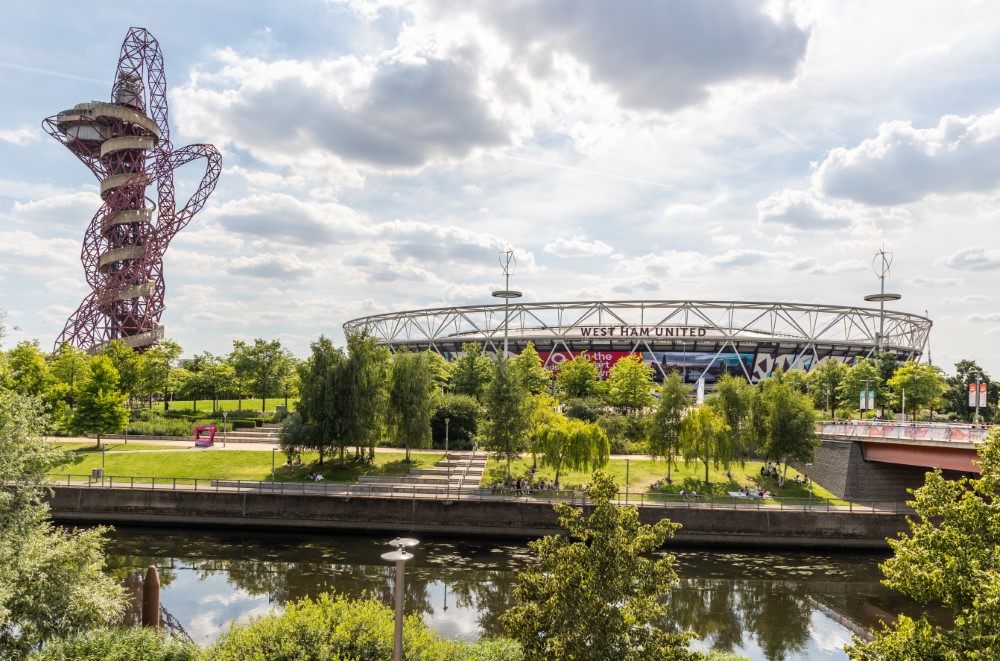Ten years after the hugely successful London 2012 Olympics, Jacobs’ Suzanne Lopes reflects on how working on the games developed her major programme mindset.
Visiting the Queen Elizabeth Olympic Park to celebrate the 10-year anniversary of the London 2012 Games, I was struck by the volume of people enjoying the open spaces. The sound of background noise and laughter complemented the beautiful public spaces to give a real buzz as people went about their lives.
It was a Monday morning but there were plenty of cyclists riding down Tessa Jowell Boulevard, friends having picnics and school groups on their way to swimming lessons. It was heart-warming to see how the area has developed into such a thriving and vibrant community.
I worked on the Olympic Park from early in its development. My role was varied, working on behalf of the Olympic Delivery Authority (ODA) to ensure the works were carried out in line with the contract, particularly in relation to the quality of construction. This involved collaborating with the architects, engineers and contractors to oversee testing and inspection at the Velodrome, shooting range and BMX track.
The legacy of the park and the surrounding area is well understood but less mentioned is the learning legacy for those who worked there. This experience gave me a whole new appreciation of working across a major programme, much of which I’ve taken into other roles since
Logistics management
Prior to the Olympics, I would be on one major project at a time and only needed to be concerned on resources for that job. On this programme I gained a whole new appreciation for the value of great logistics management. A huge number of vehicles came through the gates of the Olympic Park every day – all beautifully orchestrated for on-time deliveries to the multiple venues being built simultaneously.
Modern methods of construction
There were many points in the build of the park that were incredible to witness. For me, one of those moments was the cable-net roof structure of the Velodrome being lifted into place.
After a huge amount of pre-planning and design the team attended offsite inspections of the huge expanse of cables and connecting nodes that made up the roof structure.
It was a marvel to see these being manufactured to precision tolerances and it has stayed with me how the huge investment in up-front design time and pre-planning ensured a right time first time approach, something that is absolutely crucial when you have an immovable deadline.
The lifting of the roof structure also highlighted the importance of teamwork between the client, designer and contractor. The final building is not only aesthetically stunning but was forged through a collaboration that enabled cost and schedule surety whilst increasing safety through reduced working at height.

The former London Olympic stadium, above, now home to West Ham United FC. (Photo by In-Press, courtesy of Jacobs).
Fixed end dates
The nature of the games meant there was an immovable end date and I have taken the same ethos of immovable completion with me to every programme regardless of whether there is a looming date of an Olympic Opening Ceremony. On a programme of this complexity, I learned that part of what made the date achievable was full visibility of what was going on.
Rigorous reporting and a robust governance structure in place is crucial to enabling success, with weekly reports rolled up through various levels of governance so any risks and issues could be identified and managed effectively. It sounds simple, but sometimes simple is good!
Thinking about your neighbours
I worked really closely with my counterparts on the Aquatics Centre and Olympic Stadium while working on the Velodrome. We met weekly to see what issues were occurring on each other’s projects to prevent the same issue twice.
For example, ensuring that the quality of pre-cast concrete was sustained through the winter months by sharing information on the various suppliers, or looking at the quality of seat fabrication, all done with a view to protecting the overall programme cost, quality and schedule.
Looking at potential synergies and achieving consistency to improve efficiency is something I’ve applied since on other programmes.
I am forever grateful for the opportunity to work on the Olympic Park and for the people that I met along the way. Many of those have gone on to become life-long friends and longstanding professional relationships.
Above all, through the transformation of the site, I am proud of the legacy we have left for the community in East London. It really adds to the very happy memories from my time both during construction and enjoying the event 10 years ago.
Suzanne Lopes is head of major programmes, cities and places, at Jacobs.

